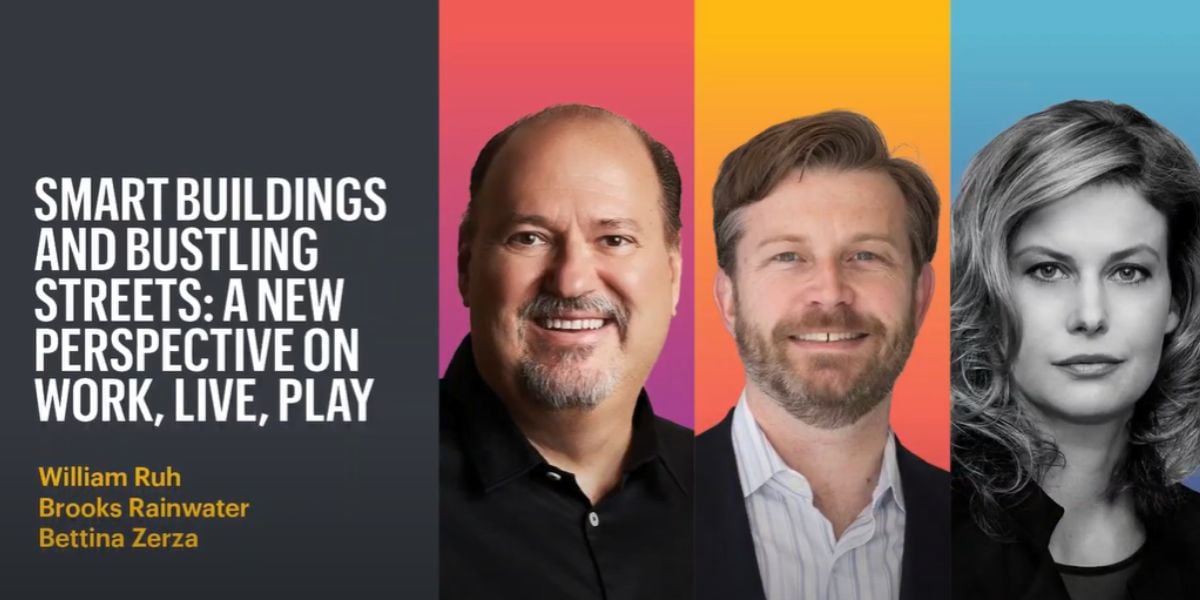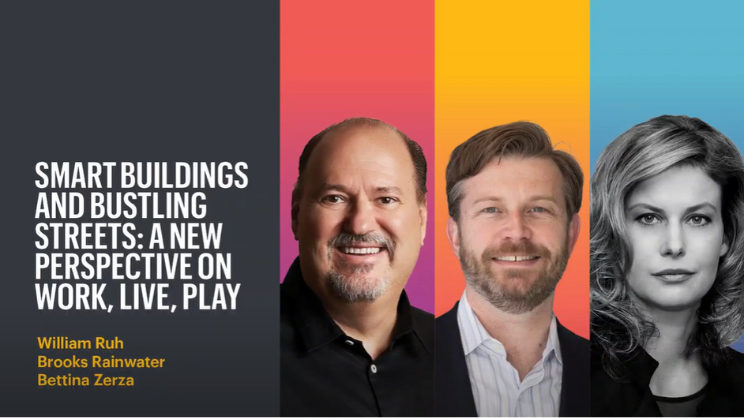
Smart Buildings and Bustling Streets: A New Perspective on Work, Live, Play
Smart Buildings and Bustling Streets: A New Perspective on Work, Live, Play
Lendlease Digital CEO Discusses Creating Intelligent and Digitally Augmented Spaces and the Role Technology Plays in Smart Buildings at WRLDCTY
As more employees return to the office, building owners and managers continue to wrestle with what the future of work looks like. Challenges such as employee happiness and retention, sustainability, and how to properly incorporate tech into buildings are at the forefront of these discussions. Furthermore, these conversations have started to include ideas and solutions about how smart buildings and design will help reimagine the cities we work in as well.
Last month, Bill Ruh, CEO of Lendlease Digital, spoke at WRLDCTY in New York City where he participated in a discussion on the topic of “Smart Buildings and Bustling Streets: A New Perspective on Work, Live, Play.” WRLDCTY is an executive forum and gathering that brings together the world’s best ideas about cities from the leading visionaries and practitioners in urban design, real estate and technology. Bill touched on several topics during this conversation ranging from intelligent places and digitally augmented offices to reimagined public spaces and the future of offices.
Moderated by Brooks Rainwater, Senior Executive, National League of Cities and Director, Center for City Solutions, Bill and Bettina Zerza, Founder and Principal at Zerza Architects talks about the role technology plays in smart buildings. Specifically discussing how “the future is autonomous buildings, and we must address the question of how does a building use its own data to operate by itself and meet the needs of the people within it? Buildings are dynamic — not stagnate — and we need to figure out how to utilize buildings more efficiently.”
Bill believes there are three key aspects in technology that will be the center of change for the building industry:
- Developers driving more automation on the front end of projects, placing an emphasis on AI/analytics tools for tracking sustainability and affordability;
- Designers and engineering suppliers creating the idea of “design solvers” — advanced analytic tools that automate actual design with design briefs from developers all on one platform; and
- Suppliers moving to a kit of blocks and seeing how all of the pieces fit together, kicking off a renaissance of rethinking products.
There’s also the role architects play when it comes to designing buildings that shape our cities. Bettina raised the point that data can help architects create better and more intelligent buildings by providing valuable insight into energy efficiency, truly putting “the human element” at the forefront of building. By creating more sustainable structures and focusing on the health of the environment, the economy and other factors, cities can be much more habitable and friendly for everyone.
This collection of data rightly supplements the ever-looming question that employers and developers are still seeking answers to: “how will companies get employees back into their offices?” Citing preliminary data collected from Lendlease’s Podium Property Insights (PPI) — an effective digital strategy for real estate owners to assess and forecast space requirements, employee satisfaction and sustainability metrics — Bill shared that there are “different ‘personas’ that are coming into the office, and the most popular persona is the ‘event attender.’” These are employees who only go into the office for events; their behavior indicates that they go into the office one to one-and-a-half days per week, but only stay two to three hours. About 23 percent of employees are ‘event attenders’.
So how does the development and build industry accommodate this new type of employee participation model? By combining AI with practical tools to enable workplace teams to respond to ever-changing employee needs, Podium is focused on helping the workplace thrive. “Buildings have to become agile and change over time, but the real estate industry is more complicated,” said Bill. “We build bespoke things, but we need to adapt to changing personas, which are happening at a quicker rate than ever before, and that’s where new tech will help enable you with personas.”

